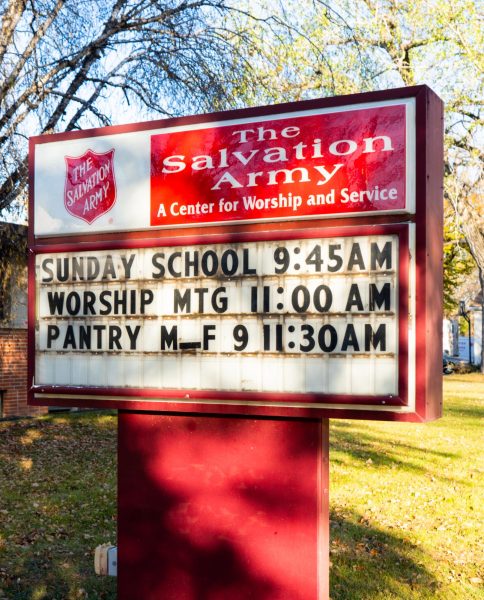Justice Scalia threatens the separation of church and state
Recently, Supreme Court Justice Antonin Scalia argued that the separation of church and state does not exclude our government from favoring religion over nonreligion.
What is even more interesting than this claim is that he refers to himself as a constitutional originalist as well as claiming that the first amendment explicitly favors religion.
Ignoring the fact that these claims demonstrate a shocking ignorance of history for a Supreme Court Justice, I think Scalia may have miscatgorized himself. He is less of an originalist and more of a textualist.
He thinks that because the words “the government shall not favor religion over non religion” aren’t explicitly or literally in the First Amendment, that it was never meant to be used that way.
The one thing everyone consistently misses when talking about separation of church and state is that it is not about whether or not the government can promote religion, but whether or not the government can promote one specific religion over others.
For example, a nativity scene on government property is not acceptable because it is promoting Christianity over Judaism.
The phrases “under God,” or “in God we trust” being on our currency or in our official Pledge of Allegiance are objected to because it implies that monotheistic religions (such as the Abrahamic religions) are superior to polytheistic religions (such as Hinduism or Wicca) despite the fact that these religions are still actively being practiced in America today.
And I hate to break it to you, but despite what Scalia or many like him would have you believe, the First Amendment was actually intended to protect the rights of those who chose not to be religious.
Our fourth President James Madison (also known as the father of the Bill of Rights due to his key role in its passage) actually opposed government issued prayer proclamations — the very thing that Scalia has been arguing in favor of.
In a letter to William Bradford on April 1st 1774, Madison once wrote, “Religious bondage shackles and debilitates the mind and unfits it for every noble enterprise.” Do you honestly think this man thought it was okay for the government to favor religion over nonreligion?
Let’s take a look at another man who was instrumental in the passage of the First Amendment, our third president, Thomas Jefferson.
Jefferson is where we got the phrase separation of church and state from. In a letter to Danbury Baptist Association he said, “I contemplate with sovereign reverence that act of the whole American people which declared that their legislature should ‘make no law respecting an establishment of religion, or prohibiting the free exercise thereof,’ thus building a wall of separation between church and state.”
Jefferson also said, “On the dogmas of religion, as distinguished from moral principles, all mankind, from the beginning of the world to this day, have been quarreling, fighting, burning and torturing one another, for abstractions unintelligible to themselves and to all others, and absolutely beyond the comprehension of the human mind.”
The original intention of the First Amendment was to limit the power of the church. Historically, we have seen time and time again when a church gets too much power, it has a tendency to abuse that power.
I think we can all agree the Spanish Inquisition and the Crusades were bad things.
And all of these happened because there was not a clear separation between church and state. The church was allowed to influence the state to the point of creating state laws based solely around the teachings of the church.
What about various countries in the Middle East, and all of the beheadings and murders that occur there? All because there is no clear enough distinction between church and the state.
Even in the founding of America itself, the pilgrims came here because of the persecution from the Church of England.
So when Scalia claims he’s an originalist or that he’s supporting what the founding fathers originally intended, it is just nonsensical. What the founding fathers intended is literally the exact opposite of what Scalia is advocating for now.
Mike Rauser is a staff writer for The Dakota Student. He can be reached at [email protected].






